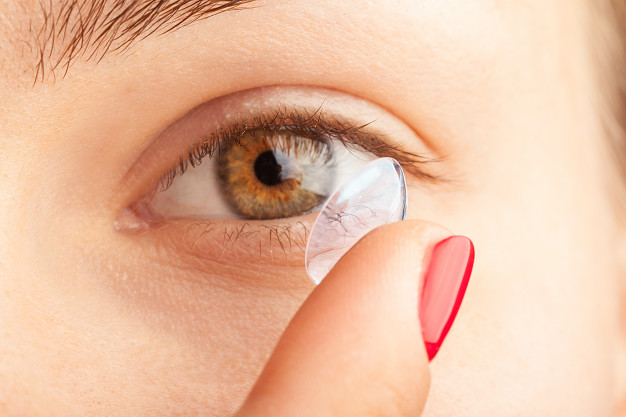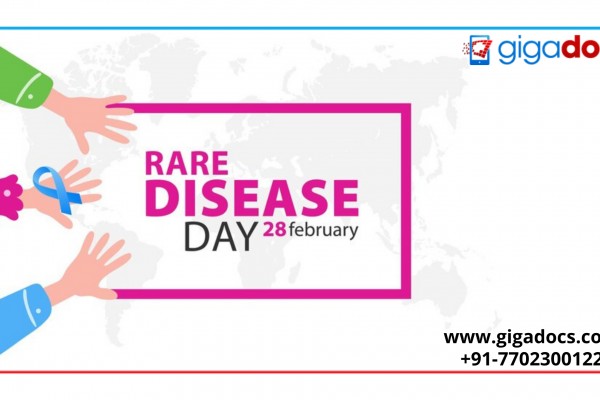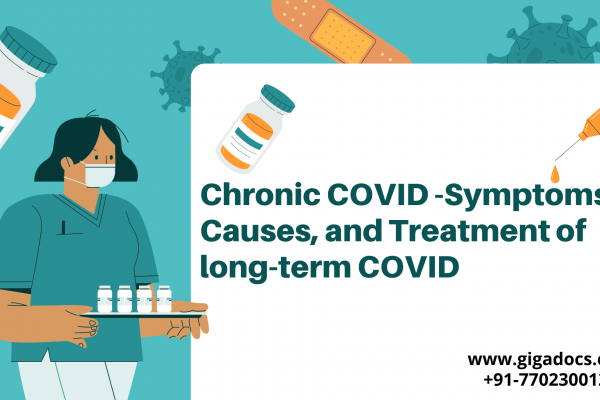An estimated 140 million people worldwide use contact lenses as a highly effective form of vision correction. Those who wear contact lenses are aware that these lenses may cause eye irritation, resulting in users to frequently touch their eyes and the face. This puts them at a higher risk of acquiring the infection. COVID-19 virus transmits through droplet transmission from the infected person. These droplets enter a healthy person through a mucous membrane like eyes, by frequent touching and changing the contact lens.
Your hands can be contaminated with Coronavirus by frequent contact with highly infected objects like doorknobs. You could potentially infect yourself when you rub your eyes. Our eyes are connected to the nose, this makes it easy for the Coronavirus to make its way into our respiratory tract where it can flourish.
Thus, stop now if you feel the urge to rub your eye and use a tissue instead of your fingers which may be contaminated.
Precautions with Contact Lens
You must follow strict hygiene when you are handling your contact lenses during the Coronavirus crisis. Wash your hands for a minimum of 20 seconds thoroughly with soap and water and dry them before you handle your contact lenses.
- Discard disposable contact lenses as recommended by your physician.
- When you sleep, take those lenses off. Studies estimate the risk of an eye infection increases by a whopping 6-8 times combining sleep and contact lenses
- Store your lenses in clean lens cases. Disinfect your lens and the case with a contact lens solution as directed by your eye-specialist and replace them every few months.
- Clean and disinfect the surface where you are handling your lenses.
- Before you go for a shower or a facewash it is a piece of good advice to remove your lenses. Water can be a potential invite to germs through your contact lenses.
Switching to Eyeglasses
You may be wondering, are eyeglasses more secure? Eyeglasses provide another layer of protection restricting the contamination from respiratory droplets which may be sneezed or coughed from a COVID-19 infected person.
Though eyeglasses are not a fool-proof protection measure as infections can enter through the sides, nevertheless, they effectively shield your eyes from the risk of contamination and prevent frequent contact with contamination.
Who should consider switching from contact lens to eyeglasses?
- High-Risk category people vulnerable to COVID-19 like those in emergency services, and those living with someone who has been diagnosed with the virus.
- If you have caught any infectious illness, consider switching to your spectacles. Your lens can transmit the infection to your lungs through your eyes. You can get back to wearing lenses after you have recovered and your ophthalmologist gives a go-ahead. Use a new pair of lenses and a new case.
Disinfecting Eyewear
Eyewear, consisting of the lenses and the frame can be a potent source of eye-irritating bacteria, mould spores, and other eye irritants. They are readily transferred from the environment to our hands and then to the eyeglasses leading to several uncomfortable eye conditions.
One of the first lines of defense to a secure eyecare and limiting your exposure to COVID-19 is keeping your eyewear clean and bright.
- Coronavirus can thrive on smooth surfaces like eyeglasses for 4 days. Thus, it is important to consistently disinfect your eyewear with a medicated solution provided by your Ophthalmologist to avoid the spread of the virus.
- Besides, sanitizing the frames, disinfect the surface where you rest your spectacles, this will limit the risk of spreading the virus.
Pink eyes and Ocular symptoms of Coronavirus
Pink eye (or conjunctivitis) is the inflammation of the transparent membrane lining of your eyeball and the eyelid. Pink eye is associated with approximately 1 to 5% of the overall COVID-19 cases. Note that all Pink eye cases do not lead or point to the COVID-19 infection.
- Conjunctivitis or Pink eye can be related to dry eyes, allergies, autoimmune diseases, or any other bacteria/ virus infection. If you have a pink eye, consult your eye specialist to determine the probable cause.
- Look out for Pink eye symptoms are like red, itchy eyes, and discharge. Isolate yourself if you have a fever and cough along with pink eyes and call your doctor to consult whether you should go in for a coronavirus test.
- Those who are still using contact lenses must stop using them if they have Pink eye symptoms. In adverse cases, if contact lenses are still used, they may not fit properly and probably lead to abrasion on the cornea or a bacterial cornea infection. This is a potentially sight-threatening complication.
When to Consult an Ophthalmologist
You must not delay and consult an Ophthalmologist if your answer is yes to any of the following-
- Are my eyes good and not itchy, do I feel any discomfort?
- Are my eyes red with water discharge?
- Am I able to see well, do I have any unusual blurring with either eye?
- Is my contact lens prescription nearing expiration or has expired?
https://www.gigadocs.com/hyderabad/ophthalmologist through the Gigadocs app from your home while practicing social isolation. To mitigate the Coronavirus infection, scare consider consulting an Ophthalmologist online, opt for Tele-consultation, and speak to your Ophthalmologist on the Gigadocs app.
Gigadocs is an intelligent practice management software that brings to you, a complete health record maintenance integrated on a digital platform. Download the Gigadocs app, to store your vital records in a secure environment, consult doctors around you, track your follow up appointments at a click of a button.
To Download the Gigadocs app-
- IOS App – apple.co/2W2iG4V
- Andriod App – bit.ly/33AQoRC
To know more e-mail, at info@gigadocs.com




